The world of coding is constantly evolving, and one of the hottest trends right now is artificial intelligence (AI). A recent study by Gartner predicts that by 2028, 75% of software engineers will use AI code assistants.
But what exactly is AI for coding, and how is it affecting the way coders work? Is it a super-powered helper or a potential job stealer?
 Photo by Steve Johnson on Unsplash
Photo by Steve Johnson on UnsplashWhat is AI-Assisted Coding?
Ever coded a project and gotten stuck writing repetitive boilerplate code for common functions? Or maybe spent ages debugging a seemingly simple syntax error?
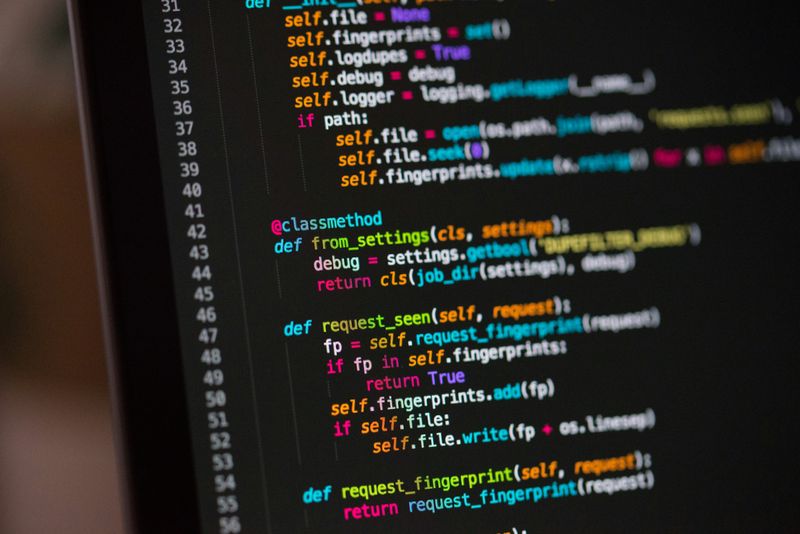 Photo by Chris Ried on Unsplash
Photo by Chris Ried on UnsplashAI-assisted coding tackles these frustrations head-on. It acts like an intelligent autocomplete for your coding environment.
Here's the gist:
Code completion: Imagine typing out a function name and having AI suggest the complete code structure and syntax based on your programming language. 🏁
Error detection and correction: AI analyzes your code, identifying potential errors, typos, or logical inconsistencies. It might even suggest corrections or alternative approaches. ❌
Code refactoring: Struggling with messy or inefficient code? AI tools can recommend ways to improve readability, maintainability, and performance. 🎯
Essentially, AI for coding streamlines your workflow, freeing you up to focus on the creative problem-solving aspects of coding.
Benefits of AI for Coding
Turbocharged Productivity
AI can automate repetitive tasks that slow coders down. Imagine AI creating code for all the common functions or handling repetitive loops, saving you tons of time and keystrokes.
 Photo by Johnson Wang on Unsplash
Photo by Johnson Wang on UnsplashBug Slayer
AI acts like a super-powered bug detective. It can almost instantly scan your code and identify potential syntax errors, typos, and even logical inconsistencies you might have missed.
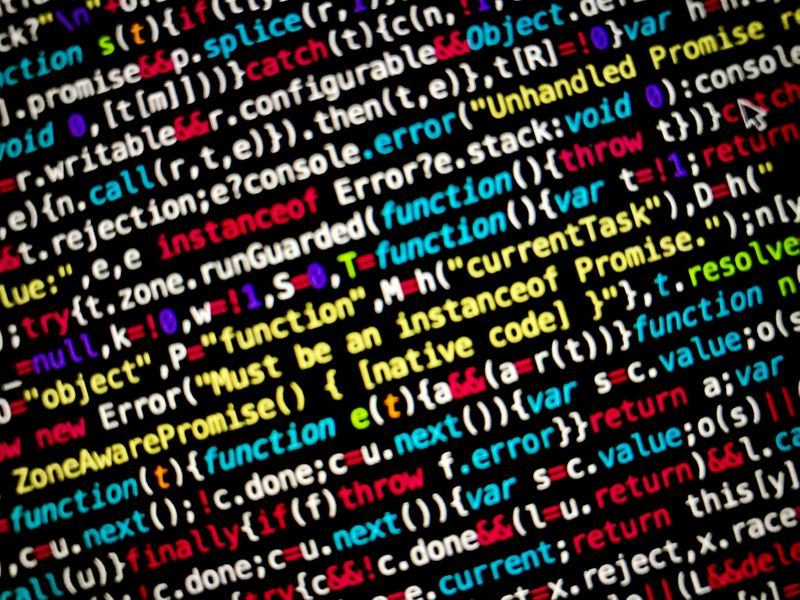 Photo by Max Chen on Unsplash
Photo by Max Chen on UnsplashQuality Code Champion
Clean, well-written code is essential. AI can analyze your code structure and recommend ways to improve readability, maintainability, and overall code quality. This means fewer bugs, code that is easy for others to collaborate on, and a smoother running program.
 Photo by JESHOOTS.COM on Unsplash
Photo by JESHOOTS.COM on UnsplashLevel Up Your Efficiency
AI can streamline your workflow by suggesting code completions based on your programming language and coding style. Using AI for coding lets you write code faster and more efficiently, freeing you up to tackle more complex problems.
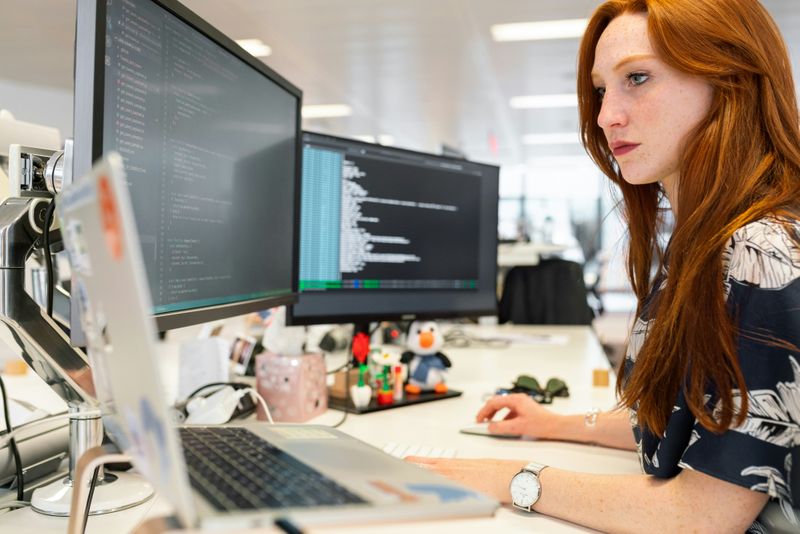 Photo by ThisisEngineering on Unsplash
Photo by ThisisEngineering on UnsplashFocus on the Fun Stuff
With AI handling the mundane tasks, you can dedicate more time to the exciting aspects of coding. Delve into creative problem-solving, design innovative features, and focus on what makes coding truly enjoyable.
 Photo by Desola Lanre-Ologun on Unsplash
Photo by Desola Lanre-Ologun on UnsplashDrawbacks of AI for Coding
Over-reliance on the Machine
While AI can be a helpful assistant, relying too heavily on AI for coding can hinder your development as a coder. You might miss out on learning the core logic behind code if you simply copy AI suggestions without understanding them.
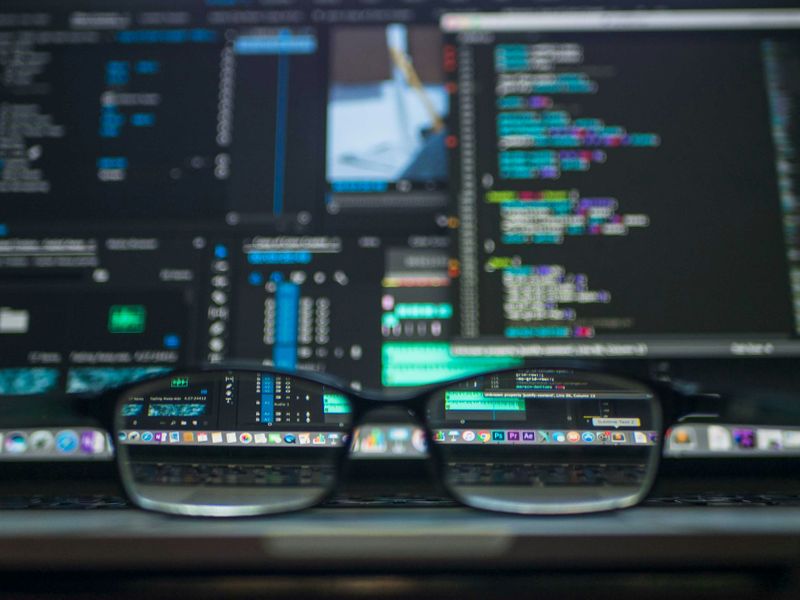 Photo by Kevin Ku on Unsplash
Photo by Kevin Ku on UnsplashLimits to Creativity
AI excels at automating tasks and suggesting solutions based on existing patterns. However, it can only do what it's familiar with, so it might struggle with truly innovative coding solutions. Overdependence on AI could potentially stifle your creativity in the long run.
 Photo by Adria Berrocal Forcada on Unsplash
Photo by Adria Berrocal Forcada on UnsplashNot a Debugging Magician
While AI can catch errors, don't mistake it for a foolproof debugging tool. Complex bugs or logical errors might still slip through the cracks, requiring your critical thinking and problem-solving skills to fix.
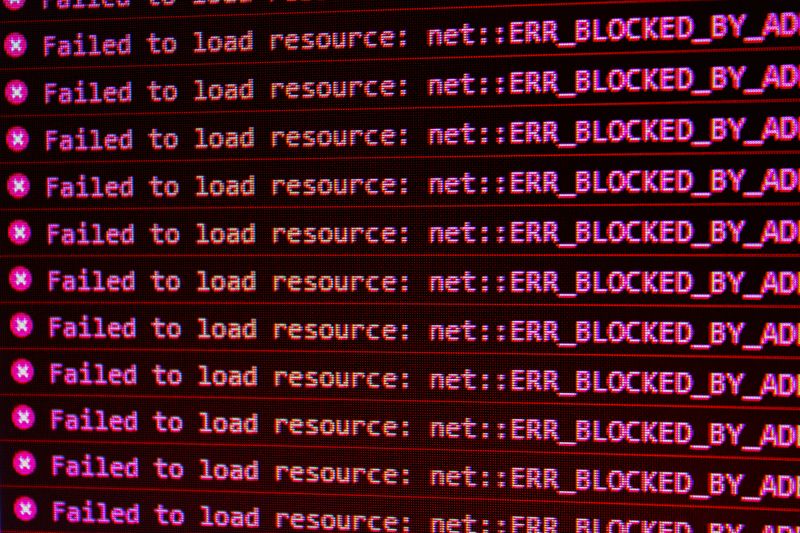 Photo by David Pupăză on Unsplash
Photo by David Pupăză on UnsplashLack of Explanation
Some AI-assisted coding tools can be like black boxes — you get suggestions, but the reasoning behind them might not be transparent. This can make it difficult to learn from the AI and truly understand the code you're working with.
 Photo by Emily Morter on Unsplash
Photo by Emily Morter on UnsplashJob Market Jitters
There's a concern that AI might completely automate some coding tasks, potentially leading to job displacement. However, this is likely to only impact specific roles and repetitive coding tasks. Strong problem-solving and creative coding skills will remain valuable.
 Photo by Jeremy Thomas on Unsplash
Photo by Jeremy Thomas on UnsplashTest Your Knowledge
 Photo by Christopher Gower on Unsplash
Photo by Christopher Gower on UnsplashYou're coding a new feature for a website, but you're stuck writing repetitive loops for data validation. What are the benefits of using AI for coding in this situation?
A. Faster code completion by automatically writing the loops.
B. Reduced chance of errors in the repetitive code sections.
C. Improved understanding of looping concepts.
D. Increased focus on designing the validation logic for the loops.
Quiz
What are some of the potential benefits? Select all that apply:
Take Action
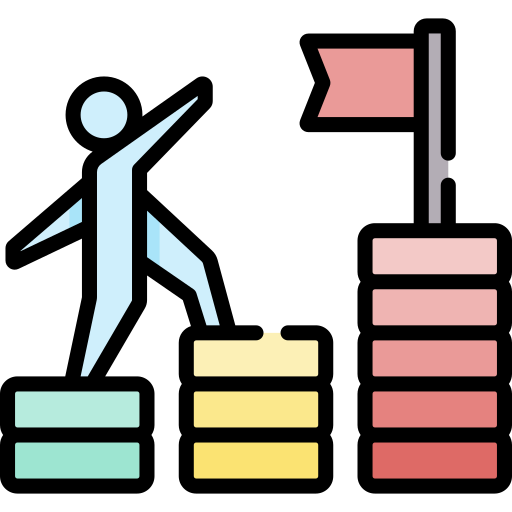
Learn more about how AI is impacting coding:
Your feedback matters to us.
This Byte helped me better understand the topic.
